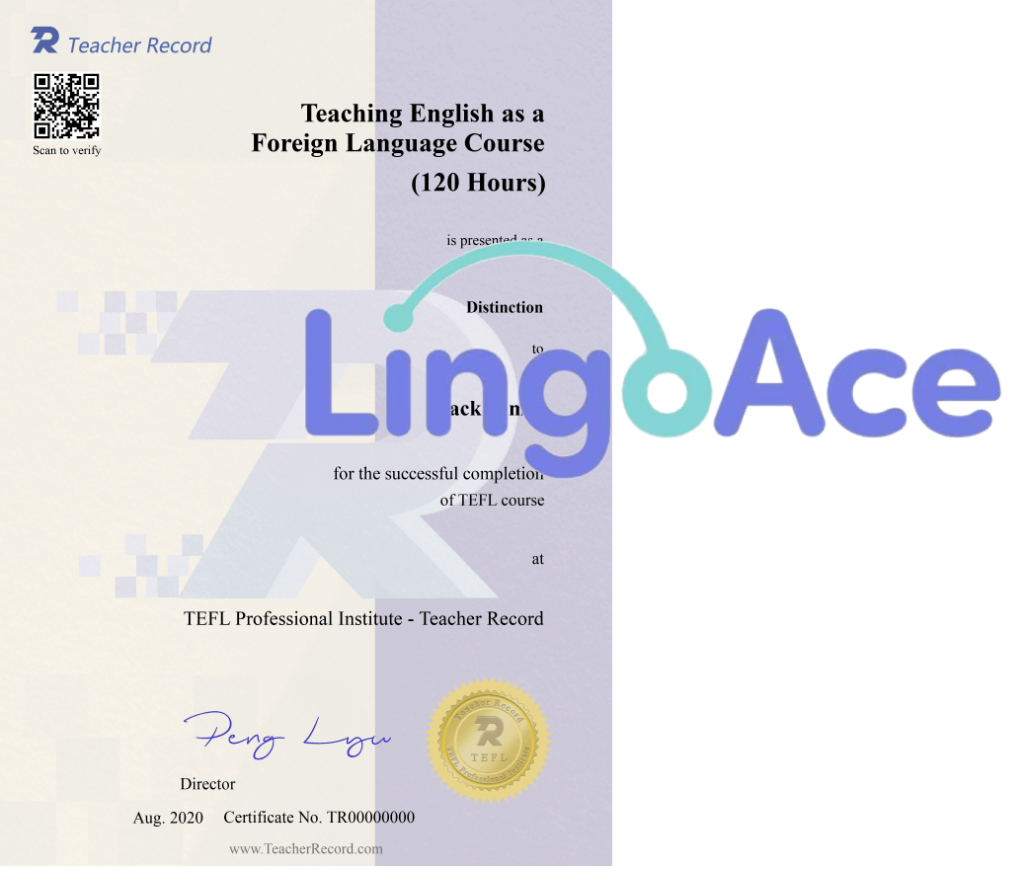TEFL: Key to Teach English Abroad Programs
Teaching English as a Foreign Language (TEFL) Certification can open doors to an exciting career abroad! In this guide, we'll cover its significance, its difference from TESOL certification, its requirements and how to obtain certification; answer common questions regarding TEFL; highlight benefits from both online and in-class courses and highlight common concerns regarding this journey together! Let's embark on this adventure together!
What Is TEFL Certification?
A TEFL Certification equips teachers with the skills and knowledge required for instructing English to non-native speakers. With this certification, teachers can access worldwide travel jobs, teaching English in different countries. TESOL can be seen as interchangeable with TEFL; both certifications provide equal training and qualifications globally.
Selecting Between TEFL and TESOL Certification:
When making your selection between TEFL and TESOL certifications, take into account what terminology will be utilized in your desired teaching destination. While TEFL may be preferred in non-English-speaking nations, both certifications have equal value internationally and hold equal recognition.
Requirements for TEFL Certification: TEFL certification is open to individuals of all backgrounds, with most states only mandating minimum age requirements of 18. Both native and non-native English speakers can pursue certification; fluency in English is necessary, although proficiency in other languages isn't a must - in many regions a university degree may not even be a precondition.
How to Acquire TEFL Certification?
Gaining TEFL certification is an essential step towards becoming an English teacher, and offers multiple avenues. From online courses like those provided by ITTT or traditional in-class programs with their respective classes or hybrid options - to free registration with access to valuable resources available with certain options - becoming certified is just an incremental step away!
Is TEFL certification necessary to teach English abroad programs?
Although not usually legally mandated, most employers prefer having certified teachers on staff for increased job prospects and improved working conditions.
Can non-native English speakers obtain TEFL certification?
This question has an easy answer! TEFL certification is open to both native and non-native English speakers alike - fluency in the language being the sole prerequisite.
What is the Difference between TEFL and TESOL Certifications?
When teaching English in non-English-speaking nations, TEFL provides more effective English lessons; while TESOL certification provides more targeted language training. However, both certifications offer equal training and qualifications.
How long does it take to become TEFL Certified?
This depends on the program. Most internationally-recognized TEFL courses require at least 120 hours of study; which can usually be accomplished either online or in class within weeks to months.
What Is the Cost of TEFL Certification?
The costs for TEFL certification depend on course provider and format. Generally, online courses tend to be more affordable with prices between $200-500 while classroom training begins from around $1,395.
Are There Any Free TEFL Certification Options?
Primary TEFL courses often incur fees; however, providers such as ITTT offer complementary additional courses and an advanced-level Diploma in TESOL with specific course options free of charge.
What Are the Advantages of Online TEFL Certification?
cost-effective learning with maximum flexibility and convenience, including accessing multimedia materials as well as tutor support and even advanced diplomas in TESOL making learning accessible for learners worldwide - making learning accessible and cost effective.
What Are the Advantages of in-Class TEFL Certification?
In-class TEFL certification offers an authentic classroom experience, with hands-on teaching practice and immediate feedback, as well as potential job openings locally as well as cultural immersion and networking among fellow students and instructors.
Selecting the Appropriate TEFL Certification Course: When choosing a TEFL certification course, make sure it suits your individual needs and goals. Shorter-format courses may be suitable for those seeking short-term volunteering opportunities; however, most internationally recognized TEFL courses require at least 120 hours for comprehensive training - in-class courses provide practical teaching experience as well as interaction with experienced professionals.
Cost of TEFL Certification:
The costs for TEFL certification courses depend on their format. Online courses tend to be more budget-friendly and easily accessible while in-class classes provide valuable networking opportunities with experienced instructors and teaching experience.
Benefits of Online TEFL Certification:
Online TEFL certification offers numerous advantages, including cost-effective learning, flexibility and convenience. Study materials can be accessed anytime with support from tutors available online as well as multimedia resources that are interactive. Furthermore, advanced diplomas in TESOL may often be made available for professional advancement.
In-Class TEFL Certification:
For those who prefer more of an immersive classroom experience, in-class TEFL certification may be a better fit. This format offers hands-on instruction, real classroom practice, and immediate feedback from experienced professionals. Plus, these courses often provide local job opportunities, cultural immersion, networking possibilities with fellow students and instructors, and valuable networking opportunities!
ITTT (International TEFL and TESOL Training) offers a comprehensive selection of TEFL certification options tailored to suit individual needs. Their courses feature top-tier study materials and superior instruction, guaranteeing you have a quality learning experience. Furthermore, ITTT provides post-course job support through affiliations with leading institutes - further increasing career prospects!
TEFL certification provides endless possibilities to those passionate about teaching English and experiencing other cultures. No matter whether it be online or in-class certification, the knowledge and skills gained through TEFL training will equip you to become a successful English teacher worldwide. So take the plunge, acquire your TEFL certificate, and embark on an incredible journey of teaching and discovery!
Keep this in mind:
TEFL certification is more than just paper - it's your gateway to an exciting, rewarding career that allows you to have an impactful influence in people's lives while experiencing different cultures! Begin your TEFL journey today and open a whole world of opportunities!
-
Volunteer to Win in TEFL/TESOL
Volunteer teaching can uplift your TEFL/TESOL career, add to your resume, and build valuable ESL ind... -
TEFL Diploma vs. Certificate: Your Path to Teaching Excellence
Explore the differences between TEFL diplomas and certificates to decide which qualification best fi... -
Lingo Ace TEFL
TeacherRecord is the official TEFL partner of Lingo Ace, tasked with providing TEFL (Teaching Englis...








